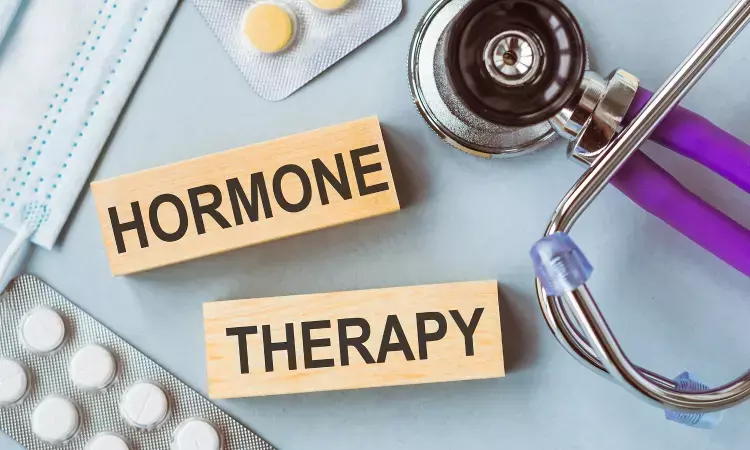- Home
- Medical news & Guidelines
- Anesthesiology
- Cardiology and CTVS
- Critical Care
- Dentistry
- Dermatology
- Diabetes and Endocrinology
- ENT
- Gastroenterology
- Medicine
- Nephrology
- Neurology
- Obstretics-Gynaecology
- Oncology
- Ophthalmology
- Orthopaedics
- Pediatrics-Neonatology
- Psychiatry
- Pulmonology
- Radiology
- Surgery
- Urology
- Laboratory Medicine
- Diet
- Nursing
- Paramedical
- Physiotherapy
- Health news
- Fact Check
- Bone Health Fact Check
- Brain Health Fact Check
- Cancer Related Fact Check
- Child Care Fact Check
- Dental and oral health fact check
- Diabetes and metabolic health fact check
- Diet and Nutrition Fact Check
- Eye and ENT Care Fact Check
- Fitness fact check
- Gut health fact check
- Heart health fact check
- Kidney health fact check
- Medical education fact check
- Men's health fact check
- Respiratory fact check
- Skin and hair care fact check
- Vaccine and Immunization fact check
- Women's health fact check
- AYUSH
- State News
- Andaman and Nicobar Islands
- Andhra Pradesh
- Arunachal Pradesh
- Assam
- Bihar
- Chandigarh
- Chattisgarh
- Dadra and Nagar Haveli
- Daman and Diu
- Delhi
- Goa
- Gujarat
- Haryana
- Himachal Pradesh
- Jammu & Kashmir
- Jharkhand
- Karnataka
- Kerala
- Ladakh
- Lakshadweep
- Madhya Pradesh
- Maharashtra
- Manipur
- Meghalaya
- Mizoram
- Nagaland
- Odisha
- Puducherry
- Punjab
- Rajasthan
- Sikkim
- Tamil Nadu
- Telangana
- Tripura
- Uttar Pradesh
- Uttrakhand
- West Bengal
- Medical Education
- Industry
HRT remains most effective treatment for menopause symptoms of hot flashes and night sweats

CLEVELAND, Ohio: It has been 20 years since The Women's Health Initiative suggested a link between hormone therapy (HT) and increased risks for breast cancer, heart disease, and stroke. Although much has been learned since 2002, many women still suffer needlessly with menopause symptoms from fear of using HT. A new video from The North American Menopause Society (NAMS) summarizes why HT remains the most effective, safest treatment for menopause symptoms.
The video, Hormone Therapy: Understanding the Risks and Benefits, is hosted by NAMS past-president Dr. Marla Shapiro and features expert insights from Dr. Juliana Kling, chair of Women's Health, Internal Medicine at the Mayo Clinic in Scottsdale, Arizona.
"Twenty years later, women are still asking about the risks of HT," says Dr. Kling. "Although they also remain concerned about heart disease and stroke, their top concern is breast cancer, even though more recent studies have demonstrated that the risks of hormones are low and are far outweighed by the benefits."
According to Dr. Kling, there is overwhelming evidence that HT remains the most effective treatment for an array of menopause symptoms, especially hot flashes and night sweats, two of the most common and burdensome symptoms. Moreover, the associated risk is very low for most women without contraindications for hormones and is primarily associated with the timing of initiation of HT.
"For most women who are aged younger than 60 years or within 10 years of their last menstrual cycle when they initiate HT, the health risks are very low," says Dr. Kling, who likened the level of risk to that of obesity or a sedentary lifestyle. "Duration of therapy influences that risk, but that doesn't mean there is a definitive cutoff of 5 years or so for all women. In addition, any potential increased risk related to a longer duration of HT can often be offset by a healthy lifestyle that includes a balanced diet and exercise."
The video details how the various formulations of HT affect a woman's risk levels. Women with a uterus who need progesterone to protect against endometrial cancer, for example, may face a slightly increased risk of breast cancer, whereas women on estrogen alone have actually been found to have a lower risk of breast cancer and a lower mortality rate from breast cancer than women on placebo.
"Unfortunately, a lot of women going through the menopause transition are suffering unnecessarily because of misrepresentation of the data from 20 years ago," says Dr. Stephanie Faubion, NAMS medical director. "It's important that women be presented with the benefits and risks on the basis of accurate data and then make the decision that is best for their specific situation in collaboration with their healthcare professionals. For most healthy women, HT is the best option for management of disruptive menopause symptoms."
To read the full article, check out the following link:
Dr Kamal Kant Kohli-MBBS, DTCD- a chest specialist with more than 30 years of practice and a flair for writing clinical articles, Dr Kamal Kant Kohli joined Medical Dialogues as a Chief Editor of Medical News. Besides writing articles, as an editor, he proofreads and verifies all the medical content published on Medical Dialogues including those coming from journals, studies,medical conferences,guidelines etc. Email: drkohli@medicaldialogues.in. Contact no. 011-43720751


